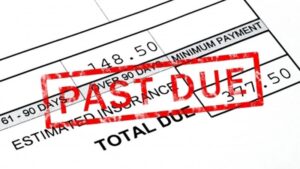Navigating the Overdrawn Director’s Loan Account in Insolvency

Directors, regardless of their company ownership, must walk a fine line when it comes to drawing
money from their businesses. Understanding the intricacies of Overdrawn Directors Loan Accounts
(ODLA) is crucial. This blog will delve into the ins and outs of ODLAs, providing insight into their
impact on directors and the legal ramifications they can entail.
As a director, there are three primary ways to extract funds from your company: salary, dividends,
and Directors Loan Account (DLA). While salaries and dividends are relatively straightforward, it’s the
DLA that often trips up many directors. The temptation to draw “advanced dividends” – profits that
have not materialised – can lead to an overdrawn DLA, setting off a chain reaction of legal and
financial consequences.
The Directors Loan Account, or DLA, is a double-edged sword. When a director lends money to the
company, they become a creditor. Conversely, if the company lends money to the director, the
director becomes a debtor. It’s imperative to grasp that if the company is insolvent, borrowing
money from it constitutes misfeasance, potentially leading to legal trouble.
Imagine a scenario where a director has loaned the company £100,000, and the company has repaid
£60,000. In such a case, the director might argue that the company still owes them £40,000.
However, in the eyes of a liquidator, if that £60,000 was repaid when the company was insolvent or
if this repayment contributed to the company’s insolvency, the liquidator can demand its return.
ODLAs function smoothly in solvent companies, but when insolvency enters the picture, caution is
paramount. Borrowing money from the company during insolvency or causing insolvency through
such actions can lead to dire consequences. An overdrawn Director’s Loan Account is a red flag in the eyes of liquidators.
The Cost of Liquidation
Liquidation may seem enticing with its initial low fees, but it can quickly become more expensive
than anticipated. Liquidators delve into a Director’s Loan Account and scrutinise payments to
directors, making this process costlier than one might initially expect.
Expenses incurred on behalf of the company can be claimed against it. However, failing to claim
these expenses promptly can lead to them being added to the Director’s Loan Account, creating
potential disputes with liquidators.
Case Study
A real-life case study illustrates the intricacies of dealing with ODLAs. In one case we dealt with, an
unlawful withdrawal was made as dividends. The builder took £10,000 to £20,000 a year as salary,
making massive profits and taking that money out monthly. At the end of the year, no profits were
left, resulting in over £200,000 owed. A legal battle ensued for almost two years, leading to a
settlement at £60,000, paid through a lump sum and monthly instalments over five years. These
negotiations demonstrate the intricacies of dealing with liquidators and insolvency practitioners.
Some may be willing to settle for an immediate lump sum rather than ongoing payments,
recognising that immediate payment is more secure.
Directors must tread carefully when dealing with an Overdrawn Director’s Loan Account. Ignoring the
legal and financial implications can lead to severe consequences. Prioritising transparency, legality,
and ethical conduct is the key to navigating these challenging situations responsibly and legally.
Debtor Alert: Theodore Global Ltd
Theodore Global Ltd: A Company That Fails to Pay Its Staff and Trades While Insolvent If you’re thinking about working with, or for Theodore Global…
Read MoreIrene MacKenzie- The Gatekeeper of Silence
Irene MacKenzie and the Web Around William Jackson In the shadows of the alternative investment world, where buzzwords are abundant but redemptions are not, one…
Read MoreThe Grim Truth for Loan Note Holders -79th Luxury Living Six Ltd (LL6)
No assets or safeguards. No clear path to recovery. If you’re one of the many investors who entrusted your money to The 79th Group’s loan…
Read MoreOverdrawn Directors’ Loan Accounts: How to Avoid Trouble
Many company directors borrow money from their businesses through what’s known as a director’s loan account (DLA). In principle, there’s nothing wrong with this, so…
Read More



